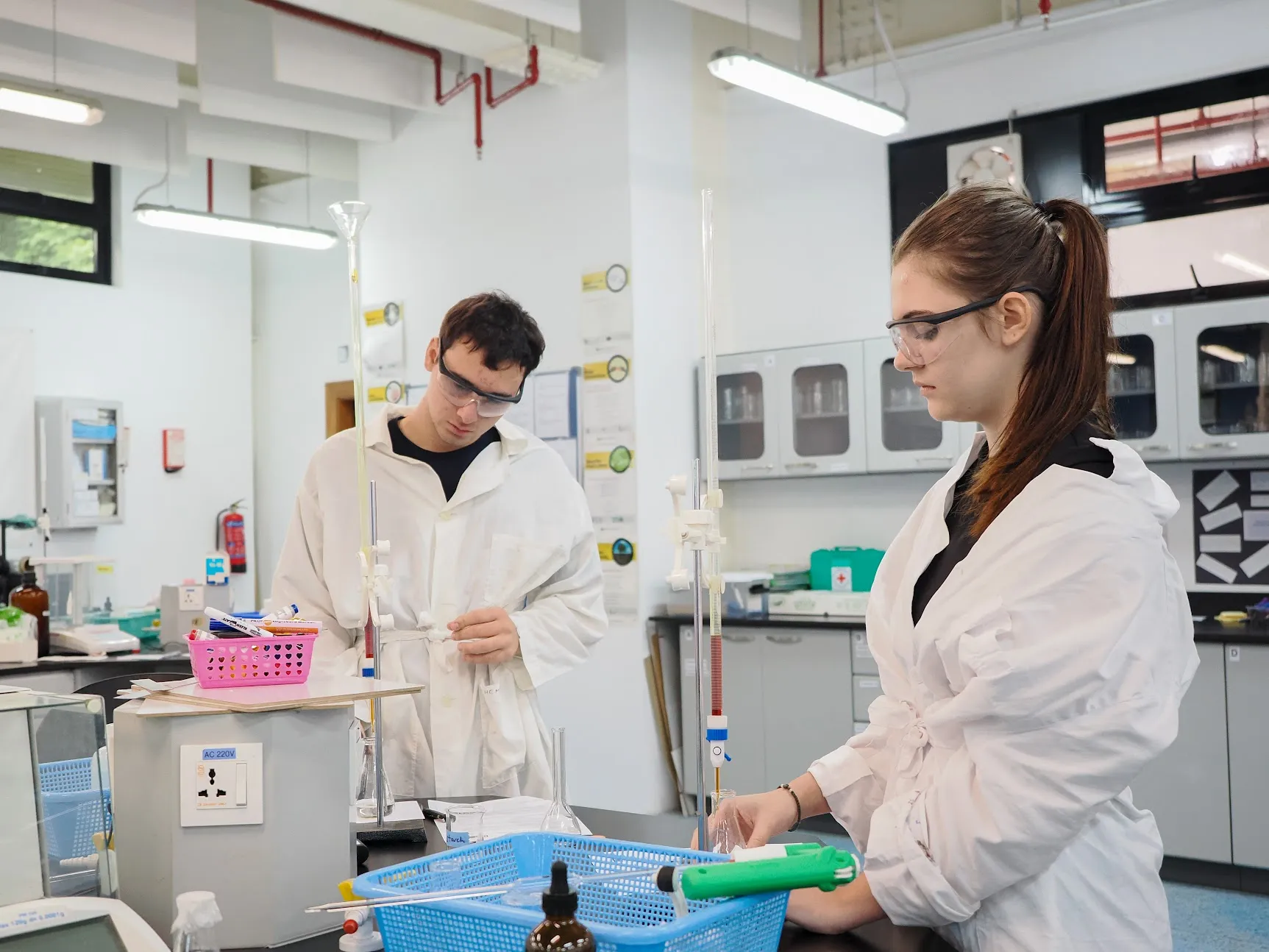Inspiring learning and belonging at the heart of Yangon.

Empowering future leaders through voice, choice, and community.

Celebrating curiosity, connection, and joyful learning every day.

.svg)
.svg)
.svg)
OUR MISSION

The International School Yangon is a community of compassionate global citizens.
OUR VISION

We aim to develop lifelong learners who will be a force for positive change in the world.
Why Choose ISY?
Whether your child is entering early years or graduating with the IB Diploma, ISY offers an inclusive, academically rich experience. With a diverse student and faculty population, we provide a nurturing, globally-minded education that prepares learners for success anywhere. Come visit us and see what sets us apart.

IB Diploma Programme
The IB Diploma Programme at ISY empowers students in Grades 11 and 12 with critical thinking, research, and global awareness. Supported by expert faculty, students gain a balanced, rigorous education that opens doors to top universities worldwide. Join a program that shapes future leaders with purpose and perspective.

Apply to ISY
ISY welcomes applications from families of all nationalities, with rolling admissions throughout the year based on seat availability. Our online application is simple and personalized support is available at every step. Start your ISY journey today by applying through our Admissions Office or visiting us on campus.

.svg)
.svg)

Admissions
ISY accepts online applications starting February 15, with decisions rolled throughout the year for Chinthe Cubs (Ages 3/4) through Grade 12

Early Years
ISY’s Early Years program includes Chinthe Cubs (ages 3–4) and Kindergarten, with innovative Reggio-inspired classrooms for young learners

Elementary School
In the Elementary School, students follow a U.S.-based curriculum enriched with service learning, arts, sports, languages and individual growth

Secondary School
In the Secondary School, we offer a U.S. curriculum until Grade 10, then the IB Diploma programme in Grades 11–12, fostering university readiness

Service Learning
Service learning is thread through ISY’s curriculum, empowering students to address real-world community needs with compassion and leadership

Alumni
ISY’s Alumni Association keeps former students connected and engaged, supporting mentorship, events and school legacy

OUR CAMPUS

Nurturing Global Learners in the Heart of Yangon

OUR LEGACY
OUR CAMPUS
Honoring over 70 years of history, ISY continues to shape globally minded learners through tradition, innovation, and community.

LOCATION
OUR CAMPUS
Centrally located in Bahan Township, Yangon, ISY is easily accessible and nestled in a peaceful, green residential area.

Community
Community
ISY is home to a warm, inclusive community, fostering global citizenship and lifelong friendships.
ISY at a Glance
100%
university acceptance rate
27+
nationalities in our school community

500+
students aged 3-18

99%
pass rate of IB Diploma candidates

17+
student-led Service Groups

250+
activities offered throughout the year
.svg)
.svg)
TESTIMONIALS

Our Voices

Emily Carter
ISY shaped how I collaborate and communicate—skills I now use every day in my career in international development.
Emily Carter

Aung Min Tun
My time at ISY taught me to lead with empathy and think globally. That mindset still guides me today.
Aung Min Tun

Sarah Kim
IB at ISY pushed me in the best way. The support I got helped me thrive in university and beyond.
Sarah Kim

Nandar Hlaing
At ISY, I learned that community and courage go hand in hand. It changed my path completely.
Nandar Hlaing

Liam Matthews
From sports to service learning, ISY gave me leadership opportunities I never thought I would have.
Liam Matthews

Chloe Tanaka
ISY taught me to think differently. That mindset still shapes how I approach design, leadership, and collaboration today.
Chloe Tanaka

Nyein Zaw Oo
Being part of ISY’s diverse community taught me to speak up, listen deeply, and lead with purpose.
Nyein Zaw Oo
.webp)

.png)
.svg)
.svg)

.svg)



.svg)
.svg)




.svg)



.png)

.png)
.svg)







